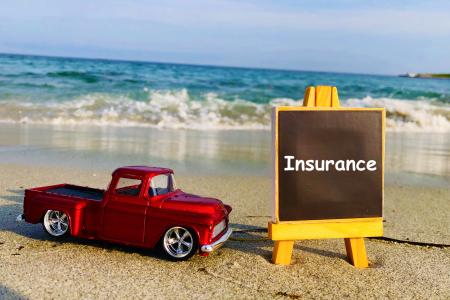
| NYC Business Group
When Should You Update Your Commercial Auto Insurance?
In the dynamic landscape of business operations, the importance of safeguarding assets cannot be overstated. Among the crucial aspects of business protection is commercial auto insurance, an insurance policy that protects vehicular operations. Although purchasing an insurance policy is prudent, there are other things you should remember. It is important for business owners to regularly reassess and update their commercial auto insurance policy to guarantee comprehensive coverage and mitigate potential risks. Here are some of the pivotal moments you should update your commercial auto policy:
Changes in Business Operations
Business owners must remain vigilant and responsive to changes in business operations because they affect the premium. One primary consideration is changes in vehicle usage patterns. As your business grows, the use of commercial vehicles changes. Therefore, whether you are introducing new services, expanding into different markets, or modifying delivery protocols, changes in business operations subsequently affect insurance coverage. If you fail to update your commercial auto insurance to reflect these changes, you will leave your business vulnerable, exposing it to potential liabilities that may not be adequately covered by the existing plan.
Adding or Removing Vehicles
Whether you are adding or removing commercial vehicles into or from your business operations, you should consider updating your commercial auto insurance policy. Most business owners add new vehicles to bolster operations or retire old ones. Be that as it may, such changes must be considered when acquiring an insurance policy. Remember that each vehicle possesses unique aspects/characteristics and risk profiles necessitating a tailored insurance plan. Failure to update your commercial auto insurance after adding or removing vehicles can result in overinsurance or underinsurance, both of which can have significant financial implications if your vehicles are involved in an accident.
Change in Drivers
If you hire new drivers or existing drivers leave, you need to inform your insurance provider to adjust your policy. Additional or departure of drivers affects insurance premiums and coverage requirements because each has their own driving and claims history. For example, new drivers might lack the training or experience of their predecessors, thus increasing the risk of accidents. The departure of experienced drivers necessitates coverage adjustment to mitigate potential risks linked with inexperienced drivers. If you fail to update your commercial auto insurance policy, there will be a conflict between coverage needs and actual risk exposure, leaving your business exposed to potential financial losses. Remember, most insurance companies charge higher premiums for drivers they perceive to be high-risk. Therefore, drivers involved in numerous accidents, traffic violations, and suspensions might attract higher rates/premiums.
Mileage Changes
Mileage accrued by commercial vehicles is a crucial factor to consider when reviewing and updating your policy. Significant mileage changes, whether due to changes in business operations or shifts in consumer demands, can affect insurance premiums. If your commercial vehicles are driven frequently, they are exposed to greater risks, necessitating higher coverage limits and premiums and vice versa. Therefore, depending on mileage changes, business owners should review and update their commercial auto insurance policy.
New Garaging Location
Insurance providers always inquire business owners where they park their vehicles during non-work hours. This is a crucial factor because it determines your insurance rate. Insurers always consider factors like population size, crime rate, and accident statistics to determine your premium. Ergo, if you have a new garaging location, inform your insurer to review and update your commercial auto policy accordingly.
Safety Features and Equipment
With advanced technology, business owners can lower insurance premiums significantly. For example, installing GPS tracking devices or anti-theft systems helps improve safety and reduce the likelihood of losses or accidents. If you install safety features or equipment in your commercial auto vehicles, inform your insurer to review and update your policy. Such changes can impact your insurance rates.
Regulatory Changes
Regulatory changes at local, state, or federal levels can prompt an update in your commercial auto policy. Changes in commercial auto insurance requirements or compliance standards require business owners to update their policies to comply with applicable regulations. Failure to update your auto insurance policy can result in non-compliance penalties and legal liabilities, which can affect business operations in the long run.
Conclusion
It is prudent as a business owner to review your commercial auto insurance policy annually, even if you have not made any significant changes. Reviewing and updating the policy ensures your auto coverage is adequate and up to date with your business operations. It is crucial to remember that staying in touch with your insurance provider can help you stay informed about new coverage options or discounts available to you, thus saving money in the long run.
Failure to update your commercial auto insurance policy on time leaves your business exposed to unforeseen risks, which can result in financial losses and reputational damage. Therefore, business owners should regularly assess and update their commercial auto insurance policies to safeguard their assets and reputation in the ever-changing business landscape.
